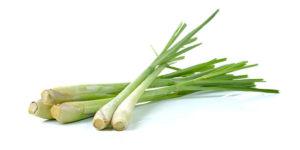Benefits of lemongrass (as herbal tea)
Lemongrass (Cymbopogon citratus) is a tall, perennial grass in a class of about 45 species of grasses native to the tropical and sub-tropical climates of Asia, Australia and Africa. In food and beverages, lemongrass is used as a flavoring. For example, lemongrass leaves are commonly used as “lemon” flavoring in herbal teas. In manufacturing, lemongrass is used as a fragrance in deodorants, soaps, and cosmetics. Lemongrass is also used in making vitamin A and natural citral. Lemongrass has long been used as a folk remedy to promote sleep, relieve pain, and boost immunity. One of the most popular ways to enjoy lemongrass is in tea. Keep reading to learn how drinking lemongrass tea may help deliver these potential health benefits.
Good for Digestion
Lemongrass has a cooling energy which helps to soothe your stomach and keeps your digestive functions in check. It contains a component called citral that helps to digest food. Therefore, it is mostly served after dinner. It has been used as an ancient remedy for all stomach problems in Chinese medicine like bloating, constipation or indigestion.
Full of antioxidants
Lemongrass tea is your detox tea. It is packed with antioxidants that help in detoxing and cleansing you from within. It helps in removal of toxins from the body by relieving fluid retention.
Regulates High Blood Pressure
Lemongrass is nature’s formula for taming high blood pressure. It is rich in potassium which increases the production of urine in our body, which in turn stimulates blood circulation and lowers blood pressure. By increasing blood circulation, it also helps in purifying the liver. Lemongrass is also known to limit cholesterol absorption from the intestines, thus promoting overall heart health.
Boosts Metabolism and Burns Fat
Lemongrass tea is a great option for your weight loss diet plan as it helps in boosting your metabolism which makes digestion quicker and helps in burning more calories. A report published in the American Journal of Clinical Nutrition in 2013 showed that polyphenols found in natural plant compounds and the caffeine content in tea increases the use of energy and enhances the oxidation of fatty acids in the body.
Cold and Flu
Lemongrass has antibacterial and antifungal properties that help you cope with cold, cough and flu. Plus, it is loaded with Vitamin C that strengthens your immunity. Boil some fresh lemongrass along with some cloves, a pinch of turmeric and tea leaves. This simple concoction is effective for breaking down mucus and phlegm build-up caused by congestion. A hot mix of lemongrass, tulsi leaves and cardamom is also a common Ayurvedic cure for cold.
Menstrual pain
Lemongrass tea is considered excellent for women’s health. It provides relief from hot flashes and helps in reducing menstrual pain due to its soothing effect.
A word of caution. Lemongrass tea is known to lower blood sugar levels. Therefore, diabetics should consult their doctor regarding its consumption. Similarly, pregnant or breast feeding women are advised to avoid lemongrass due to the workings of certain chemical compounds.
Benefits of lemongrass with ginger (as herbal tea)
Ginger and lemongrass are two herbs you can use to brew tea with several possible health benefits. Research on animals and in petri dishes has shown ginger and lemongrass may have the potential to lower your risk of chronic diseases, including cancer, but these effects have not been verified in humans. Both herbs have anti-inflammatory properties, and ginger has been found to reduce appetite. Consult your doctor before drinking ginger and lemongrass tea if you’re pregnant, breastfeeding, taking medications or taking other herbs.
Reducing Inflammation
Both ginger and lemongrass are anti-inflammatory herbs. An article published in the “Journal of Medicinal Food” in 2005 notes that ginger shares the same properties as nonsteroidal anti-inflammatory pharmaceutical drugs but has been found to be more effective and have fewer side effects. A study published in “Microcirculation” in 2010 showed that a compound called citral found in lemongrass inhibits the formation of acid that causes inflammation. In the study, scientists administered lemongrass to mice with inflammatory bowel disease and found that it reduced their inflammation both in the short term, after two weeks, and in the long term, after six months.
Protection With Antioxidants
A study published in the “Journal of Agricultural and Food Chemistry” in 2005 found that lemongrass contains antioxidants. Antioxidants work by eliminating free radicals in the body, and consuming antioxidant-rich foods and herbs regularly can lower your risk of developing several chronic diseases. A study published in 2002 found that ginger has a very high antioxidant content compared with other plants. In a 2008 study published in “Fitoterapia,” ginger was found to protect against alcohol-related liver toxicity in rats due its antioxidant qualities.
Weight Loss Efforts
In a study published in the “Journal of Ethnopharmacology” in 2007, rats were administered a dose of lemongrass extract every day. After six weeks, they had lowered glucose levels, total cholesterol, triglycerides, the bad LDL and VLDL cholesterol levels, and increased levels of good HDL cholesterol. The effects of lemongrass tea on the lipid profile of humans are still unknown. Ginger has been shown to reduce appetite, which could play a role in helping you achieve weight loss goals. In a 2012 study published in “Metabolism,” ginger lowered food intake and feelings of hunger while increasing feelings of fullness in men who consumed it, in comparison to the control group that did not.
Lemongrass is included in the following variants of Evina Naturals Healtea:
- Premium Ginger & Lemongrass
- Turmeric & Lemongrass




